ETH at WEF 2019: Rethinking Design
For the third time, ETH Zurich was present at the WEF in Davos from 22 to 25 January. With the slogan "Rethinking Design", this year’s exhibition explored the question of how people will design their living spaces in future and which materials could play a role in this process.
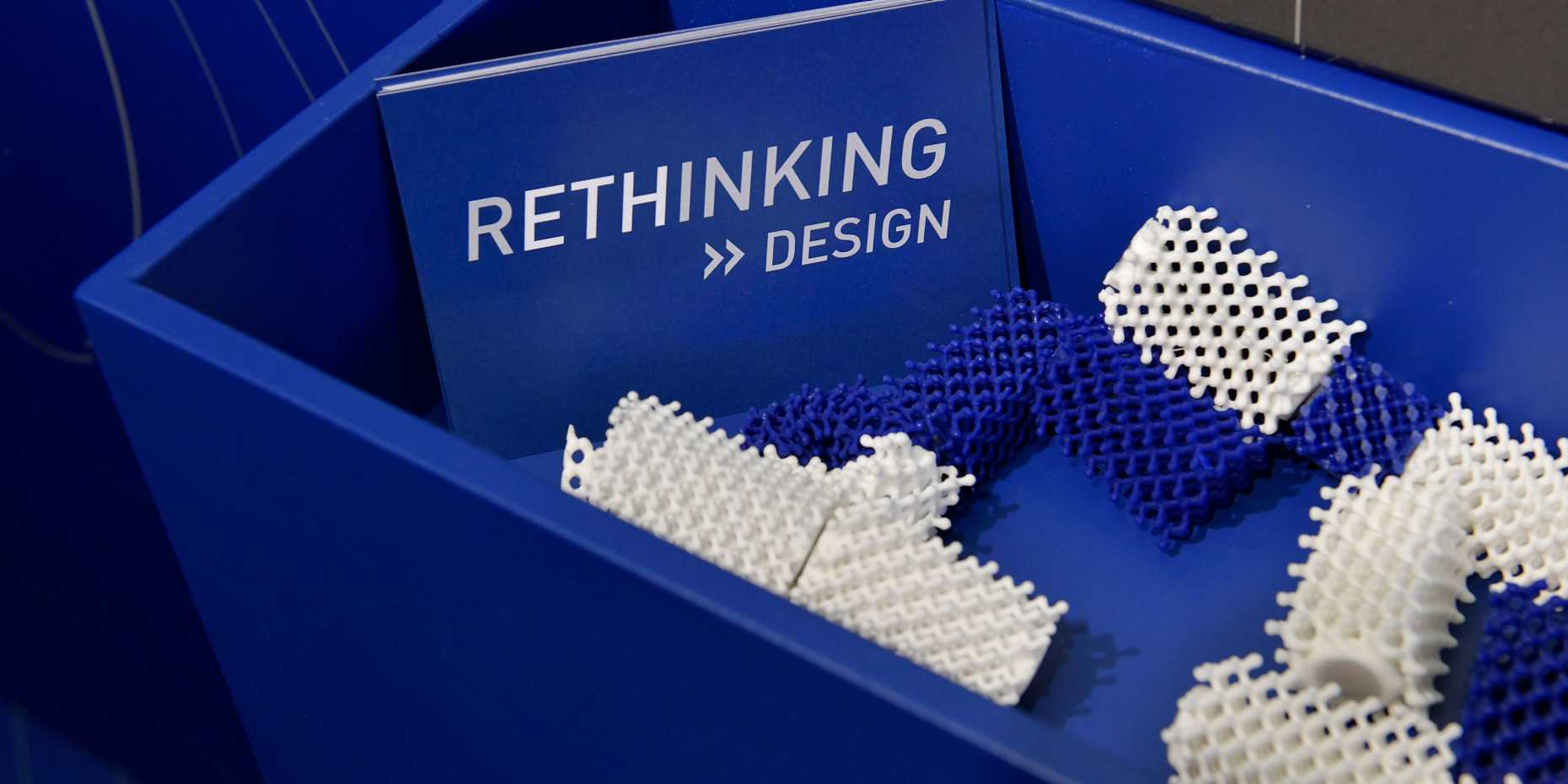
“That’s just how I started!” says one of the first eyewitnesses of what may be the world’s first ice-skating robot. ETH’s four-legged Skaterbot, which is about the size of a cat, taught itself to move on skates and thus has a very unique style. It meanders slowly but not inelegantly over the ice in front of ETH’s pavilion in Davos. The Skaterbot is definitely the star of ETH’s third visit to the World Economic Forum’s annual meeting. However, there are plenty of other highlights too.
Inside, visitors sit in the scientific restaurant Tastelab, which is once again showing off its culinary experiments, and watch the goings-on on the ice through the panoramic window. Two ice hockey professionals from HC Davos have a rendezvous with the Skaterbot, but apparently they’re not worried about being replaced by machines. Right next to the Tastelab, the Rethinking Design exhibition is open to interested members of the public every day. The visitors are as diverse as the programme, including school pupils, ETH alumni, and prominent local figures from politics, business and culture. “It’s amazing what the ETH team here in Davos has achieved; the effort and dedication that the researchers put into presenting their projects is truly inspiring,” said ETH President Jo?l Mesot, who was very impressed during his first WEF appearance in his new role.
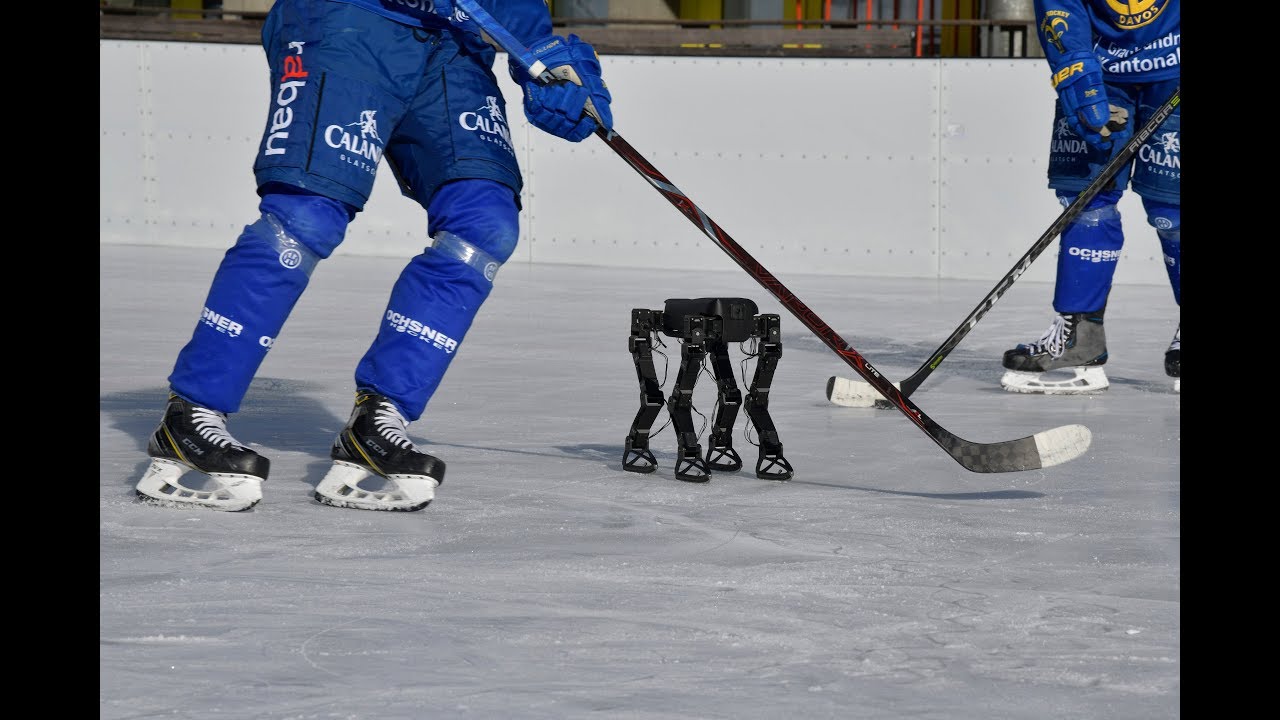
Design – from a scientific viewpoint
The guests of honour at the Rethinking Design reception were also impressed by the variety of the objects on display. They then listened to a discussion on the topic of design, conducted by several of the ETH professors involved in the exhibition – Kristina Shea, Philippe Block, Gisbert Schneider and Simone Schürle – in a full-to-capacity pavilion. Their conclusion: the demands made on the design of objects change over time, whether in relation to appearance, use or efficiency. “In our era of increasingly scarce resources, it is important that scientists and engineers take sustainability into account as early as the design phase,” said architecture professor Philippe Block. After the panel discussion, guests had the opportunity to view the exhibition and grill the researchers. The exhibition covered everything from game design and a virtual reality tour through ETH’s Robotic Fabrication Laboratory to new materials, such as an “artificial tree” that converts CO2 and light into solar power, lightweight fibres that could replace steel cables, and a new material that could be used to construct computers in future.
ETH hosts official WEF event
The public exhibition was only one part of ETH Zurich’s involvement at the WEF: the University also organised various events for invited guests. The first of these was the panel discussion “The Ethical Imperative”. Moderated by Magdalena Skipper, Editor-in-Chief of Nature, Jean-Pierre Bourguignon (European Research Council), Brian P. Schmidt (President of the Australian National University) and ETH professor Gabriela Hug discussed the necessity and feasibility of an ethical code for science. Other panels, organised with the support of major IT companies such as Microsoft and Google, focused on a topic of central importance to the future of humanity: artificial intelligence. The panellists agreed that we should not be led by fear: new materials and new technologies have always changed human civilisation – and thereby helped it to progress.
Impressions
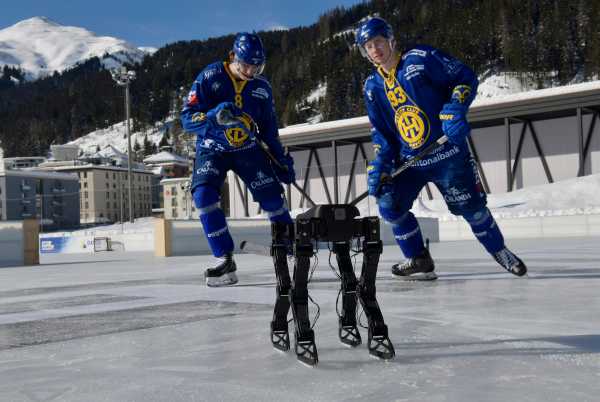 ETH Alumni venturing into a new dimension.
ETH Alumni venturing into a new dimension.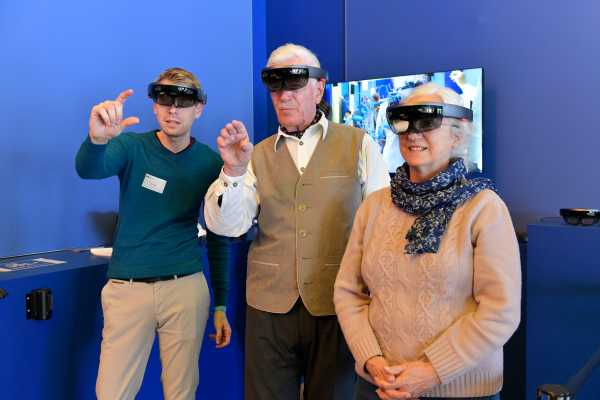 SAM, the soft robotic hand.
SAM, the soft robotic hand.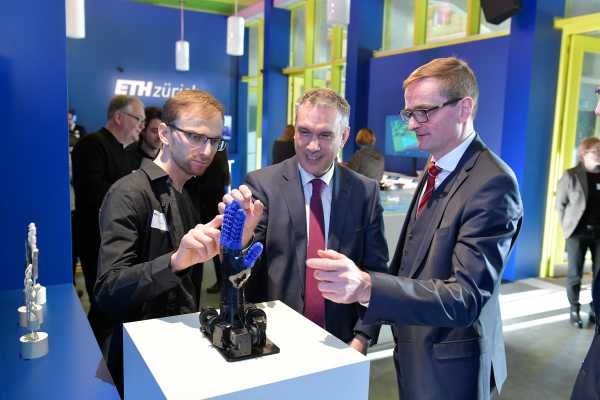 ETH President Jo?l Mesot opens “The Ethical Imperative” session with Magdalena Skipper, Jean-Pierre Bourguignon, Brian P. Schmidt and Gabriela Hug.
ETH President Jo?l Mesot opens “The Ethical Imperative” session with Magdalena Skipper, Jean-Pierre Bourguignon, Brian P. Schmidt and Gabriela Hug.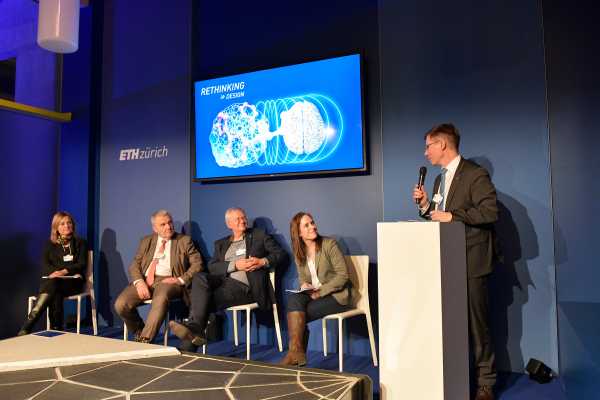 Inspecting the design for floors of the future.
Inspecting the design for floors of the future.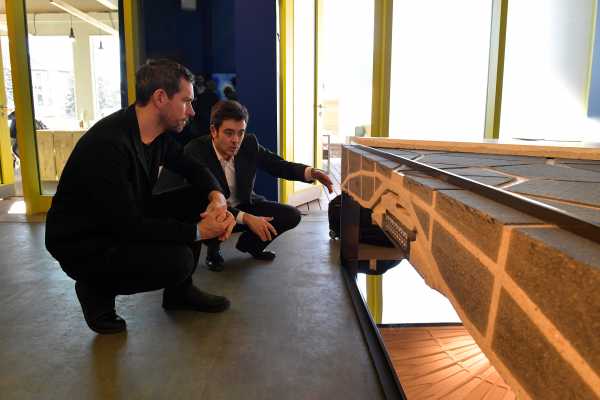 Simone Schürle (ETH Zurich), Mamokgethi Phakeng (University of Cape Town) and Karin Vey (IBM Research) at the Times Higher Education Davos Forum.
Simone Schürle (ETH Zurich), Mamokgethi Phakeng (University of Cape Town) and Karin Vey (IBM Research) at the Times Higher Education Davos Forum.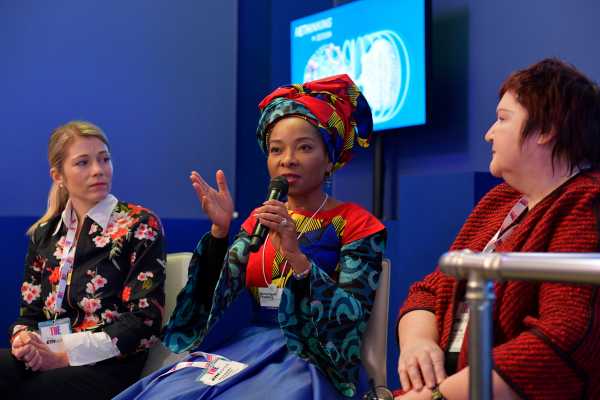 Fun and games with the ETH Game Technology Center.
Fun and games with the ETH Game Technology Center.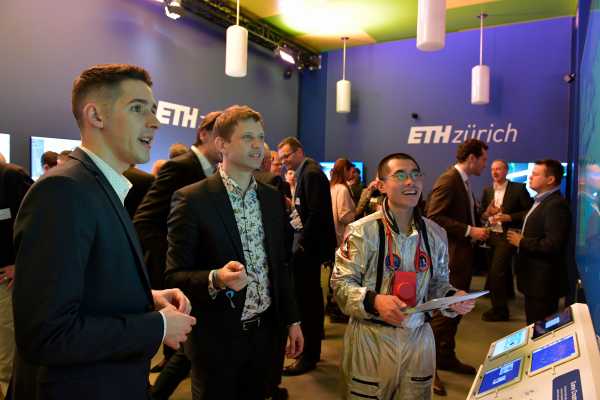 Material Design: Magnesium implants that dissolve after healing.
Material Design: Magnesium implants that dissolve after healing.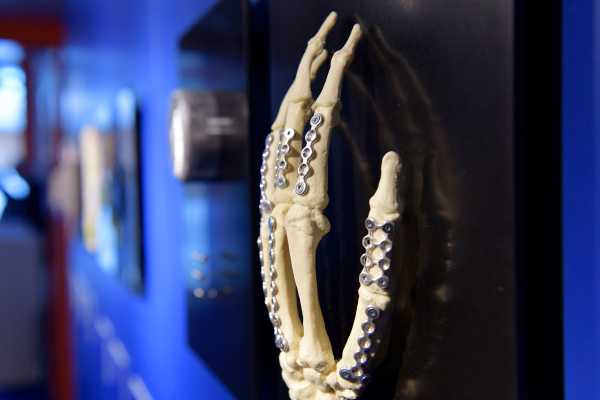 Switzerland’s economics minister Guy Parmelin in the Tastelab.
Switzerland’s economics minister Guy Parmelin in the Tastelab.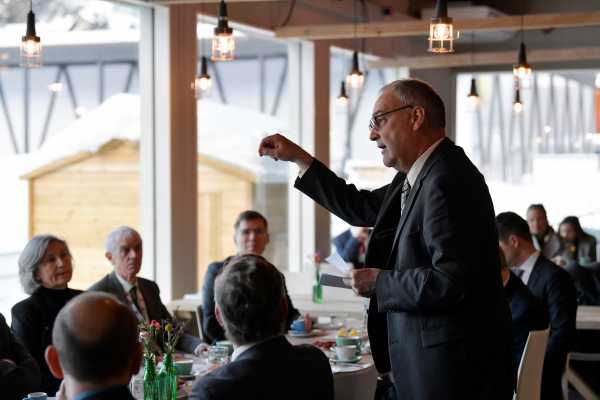 4D Design explained – Design that includes “time” as a fourth dimension.
4D Design explained – Design that includes “time” as a fourth dimension.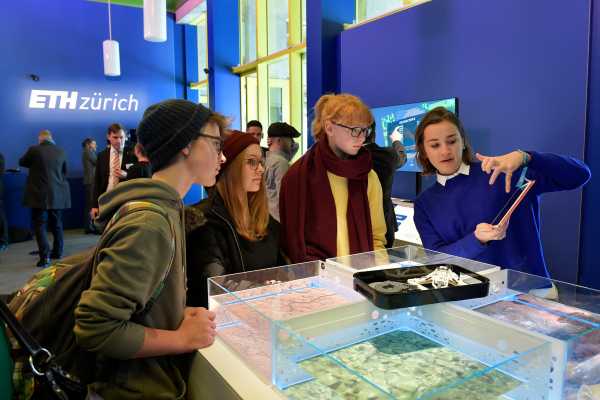 The ex guitarist of Queen Brian May skyping into the Starmus Nightcap.
The ex guitarist of Queen Brian May skyping into the Starmus Nightcap.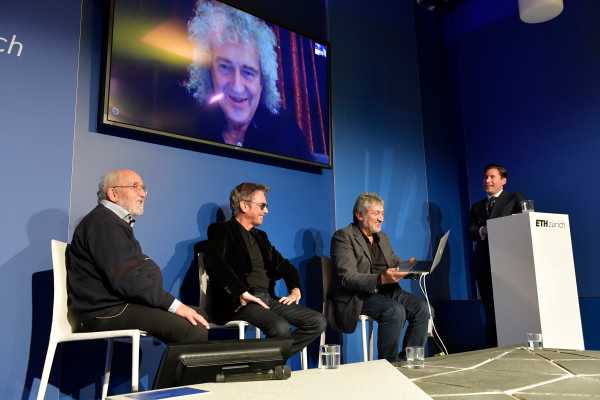 ETH Zurich in Davos during the WEF 2019.
ETH Zurich in Davos during the WEF 2019.
